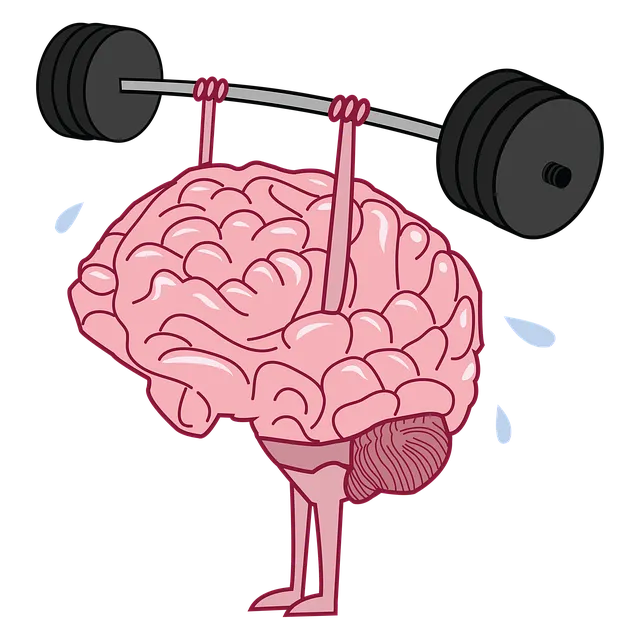Arvada Kaiser Permanente behavioral health providers promote mental wellness journaling as a daily practice for self-reflection and personal growth. By documenting thoughts, emotions, experiences, and observations, individuals gain insights into their mental health, track progress, identify triggers, and complement traditional therapy with strategies like mindfulness meditation. Consistency, clear purpose, and a peaceful space are key; starting with short sessions and prompts like "What made me smile today?" can help establish a routine for enhanced emotional intelligence and positive thinking.
Unwind your mind and embark on a journey of self-discovery with mental wellness journaling. This powerful tool, recommended by the Arvada Kaiser Permanente behavioral health providers, fosters self-reflection and promotes personal growth. Through structured exercises, you can navigate your thoughts, emotions, and experiences, gaining valuable insights into your mental landscape. In this article, we guide you through understanding, getting started, and incorporating journaling into your daily routine, providing strategies for sustained well-being.
- Understanding Mental Wellness Journaling: A Tool for Self-Reflection and Growth
- Getting Started with Your Journal: Tips from Arvada Kaiser Permanente Behavioral Health Providers
- Incorporating Journaling into Daily Life: Strategies for Consistency and Well-being
Understanding Mental Wellness Journaling: A Tool for Self-Reflection and Growth

Mental wellness journaling is a powerful tool for self-reflection and personal growth, offering individuals a dedicated space to explore their thoughts and emotions. This practice encourages active engagement with one’s mental health, much like how regular exercise strengthens the body. By committing time each day or week to write about experiences, feelings, and observations, individuals can develop deeper insights into their thought patterns and behaviors, fostering a stronger sense of self-awareness.
This form of journaling is not merely about documenting negative feelings; it’s a platform for exploring a wide range of emotions and experiences, from joy and gratitude to stress and anxiety. For those seeking support in depression prevention or mood management, consistent journaling can serve as a valuable companion. It enables individuals to track their progress over time, identify triggers, and experiment with strategies like mindfulness meditation for improved mental wellness. Arvada Kaiser Permanente behavioral health providers encourage this practice as a holistic approach to well-being, complementing traditional therapy and counseling services.
Getting Started with Your Journal: Tips from Arvada Kaiser Permanente Behavioral Health Providers

Starting your journaling journey can seem daunting, but the behavioral health providers at Arvada Kaiser Permanente are here to guide you. They suggest beginning with a clear purpose in mind—whether it’s tracking mood patterns, exploring thoughts and feelings, or simply providing a creative outlet for self-expression. Choose a space where you feel comfortable and safe, free from distractions, to foster a consistent journaling practice.
Consider setting aside dedicated time each day or week. Start with just a few minutes and gradually increase as you become more comfortable. The key is consistency. Use prompts if needed; questions like “What made me smile today?” or “What am I grateful for?” can help when words seem challenging. Remember, journaling is a powerful tool for self-awareness exercises and stress management, even if it feels unconventional at first.
Incorporating Journaling into Daily Life: Strategies for Consistency and Well-being

Incorporating journaling into your daily routine can be a transformative practice for enhancing mental wellness, and Arvada Kaiser Permanente behavioral health providers encourage this simple yet powerful tool. Consistency is key; start with a realistic goal, such as writing for 15 minutes each day. You might choose to journal first thing in the morning to set a positive tone or before bed to reflect on the day’s experiences. The act of putting pen to paper (or fingers to keyboard) provides an opportunity for self-reflection and processing emotions.
Consider making it a ritual by creating a designated journaling space and using specific prompts to guide your thoughts. These prompts could be as simple as “What made me smile today?” or more reflective questions like, “How can I practice self-compassion in challenging situations?” Incorporate communication strategies and conflict resolution techniques into your journaling practice by writing about interactions that mattered. By exploring these dynamics on paper, you can develop a deeper understanding of yourself and others, fostering positive thinking and emotional intelligence.
Mental wellness journaling is a powerful tool accessible to everyone, as advocated by the Arvada Kaiser Permanente behavioral health providers. By dedicating time each day to reflect and write, individuals can cultivate a deeper understanding of their thoughts and emotions, fostering personal growth and enhanced well-being. Consistency is key; incorporating this practice into daily life allows for sustained mental clarity and resilience. Whether it’s before bed or during a quiet morning, the act of journaling becomes a sanctuary where self-discovery and healing can take place.





